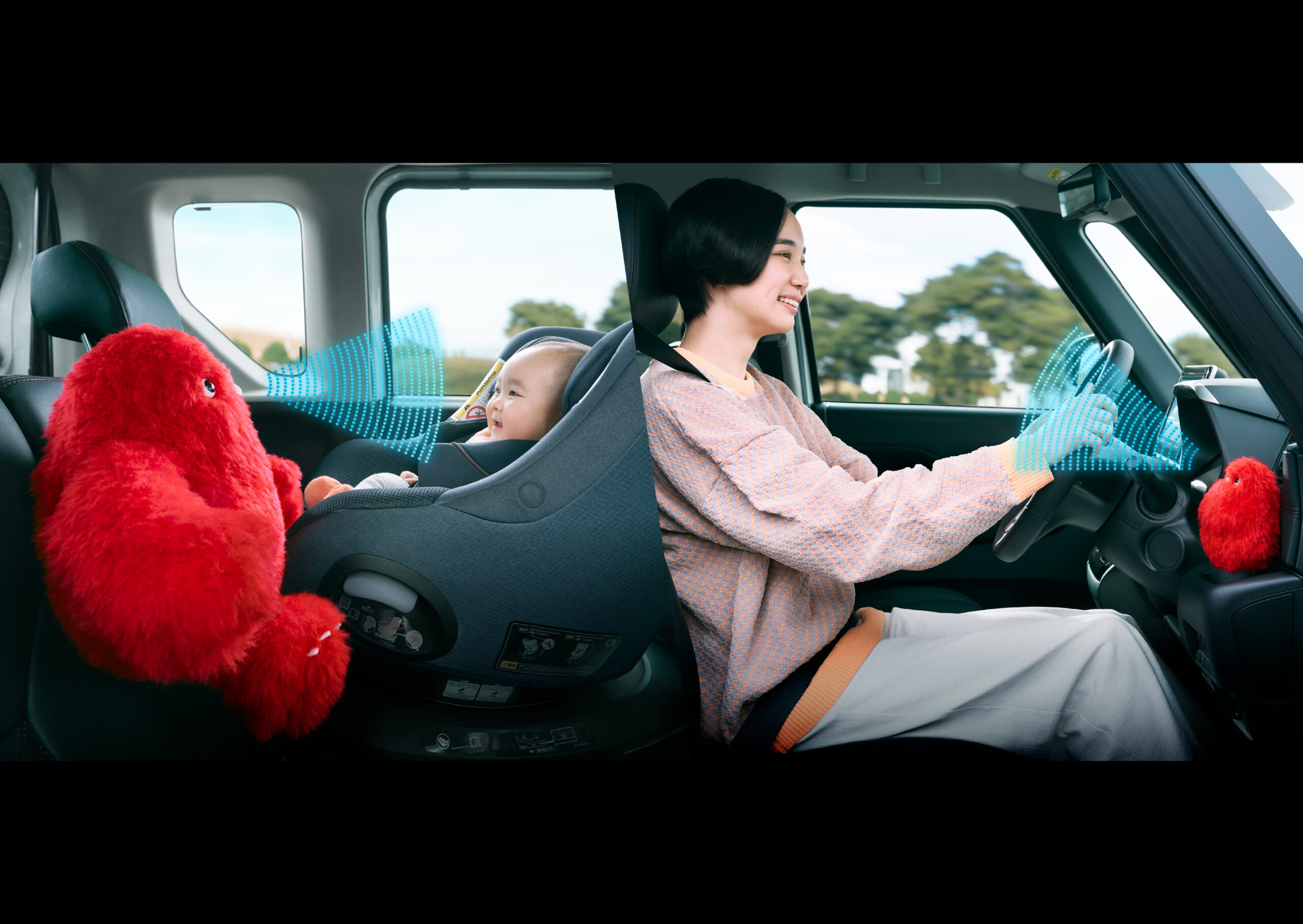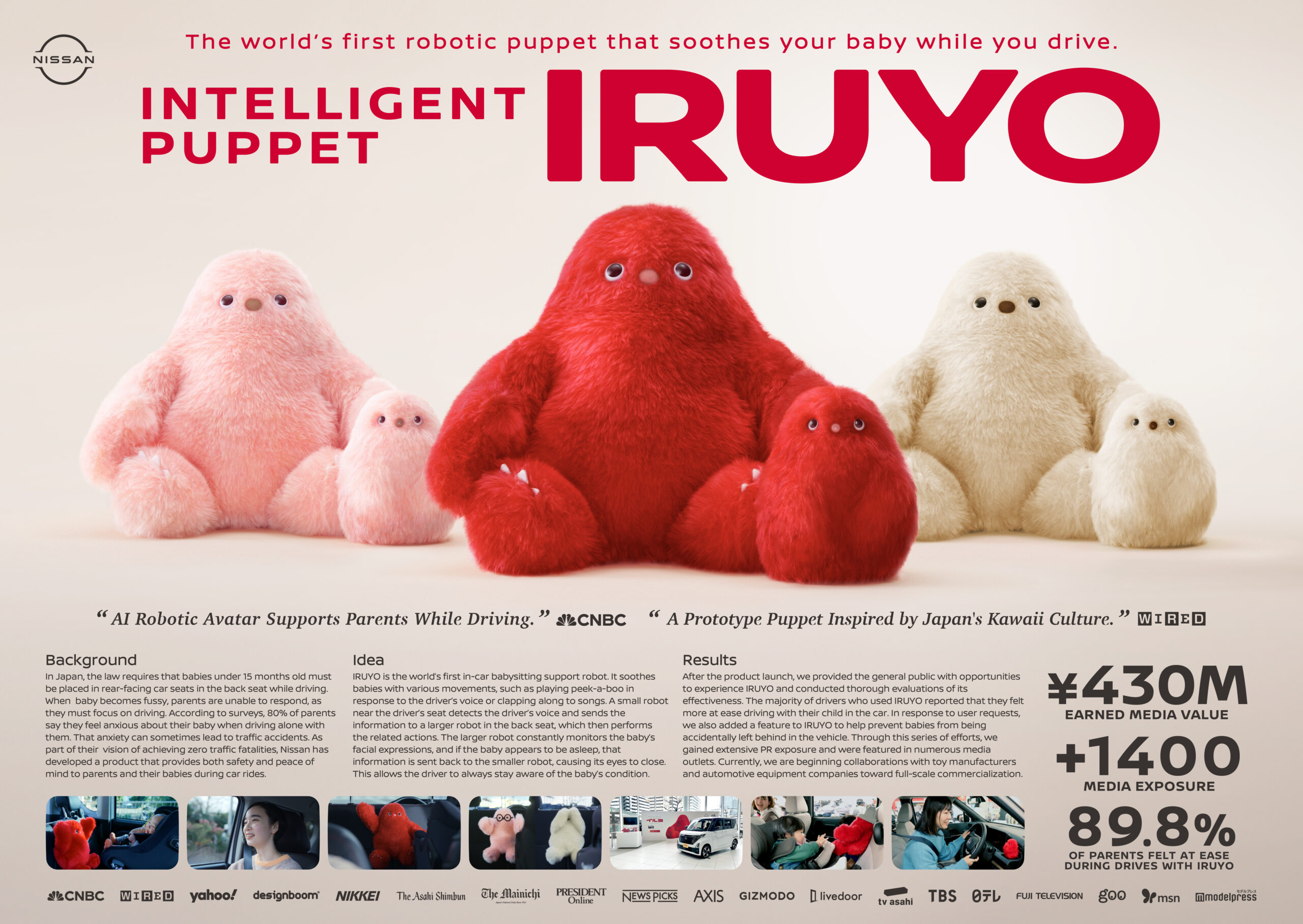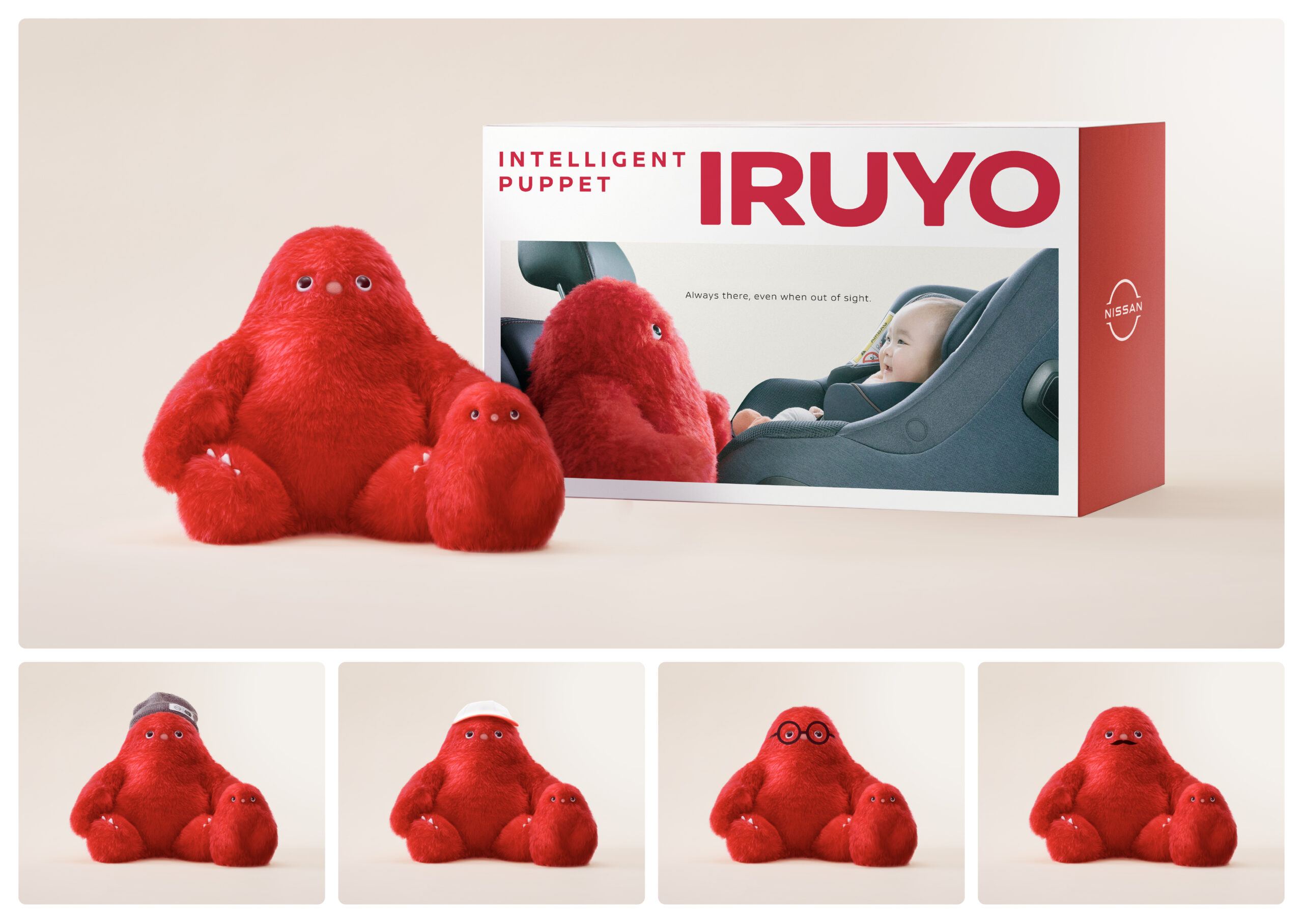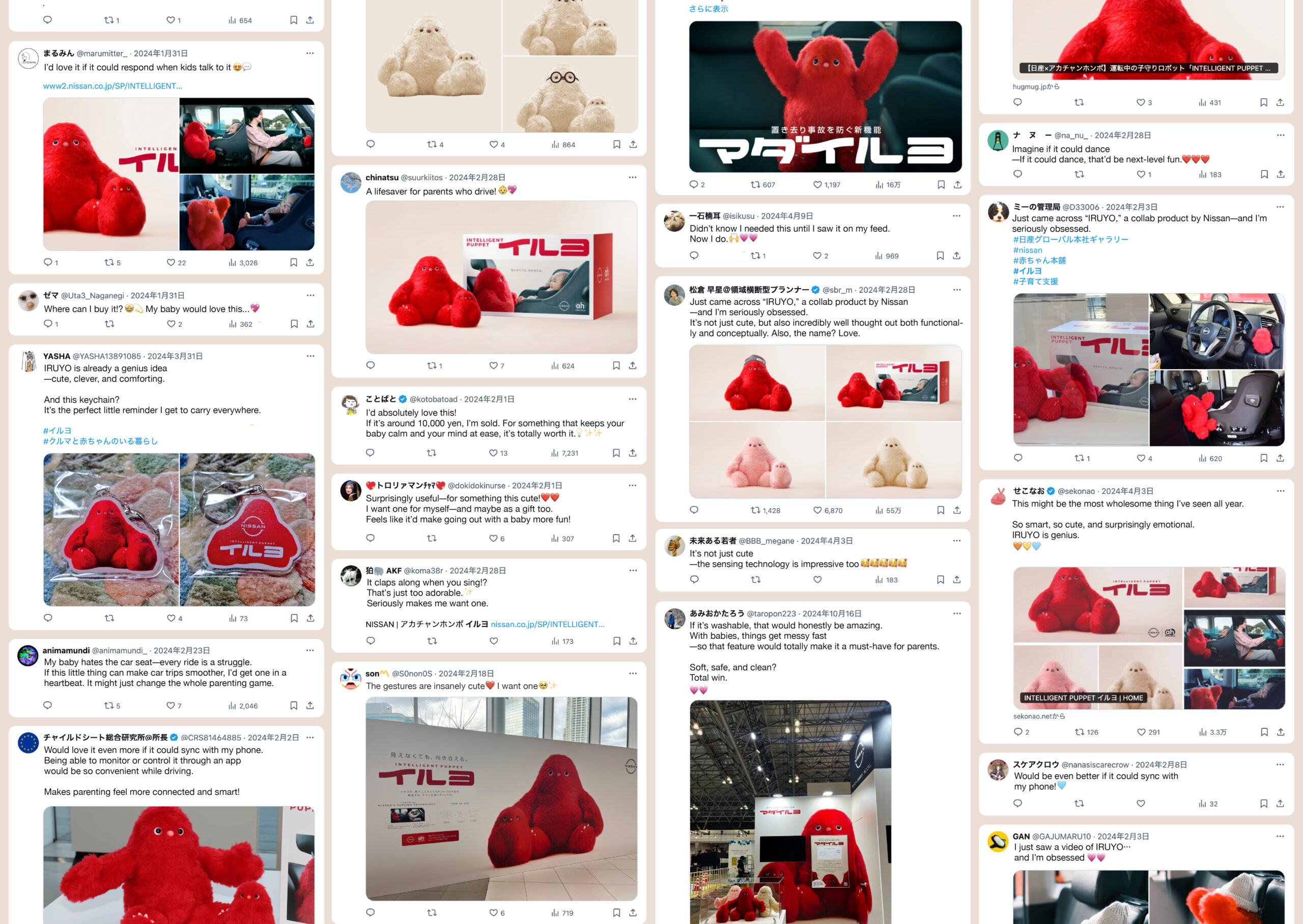
Intelligent Puppet IRUYO
Nissan
TBWA\HAKUHODO
The Challenge
In Japan, the law requires that babies under 15 months old must be placed in rear-facing car seats in the back seat while driving. When a baby becomes fussy, parents are often unable to respond, as their attention must remain on the road. According to surveys, 80% of parents report feeling anxious when driving alone with their baby—and that anxiety can sometimes lead to traffic accidents.
The Solution
As part of its vision to achieve zero traffic fatalities, Nissan has developed a product that offers both safety and peace of mind for parents and their babies during car rides.
IRUYO is the world’s first in-car babysitting support robot. It soothes babies through interactive movements—such as playing peek-a-boo in response to the driver’s voice or clapping along to songs. A small robot positioned near the driver’s seat detects voice cues and transmits the information to a larger robot in the back seat, which then performs the corresponding actions.
The larger robot continuously monitors the baby’s facial expressions, and if the baby appears to be asleep, it sends that information back to the smaller robot—prompting it to gently close its eyes. This creates a real-time feedback loop, allowing the driver to remain aware of the baby’s condition without turning around or becoming distracted.
Watch the Innovation Case Study
Watch the Design Case Study
The Results
After the product launch, TBWA\HAKUHODO provided the general public with opportunities to experience IRUYO and conducted thorough evaluations of its effectiveness.
89.8% of drivers who used IRUYO reported feeling more at ease when driving with their child in the car.
In response to user feedback, a new feature was added to help prevent babies from being accidentally left behind in the vehicle.
These efforts resulted in extensive PR exposure valued at ¥430 million, with coverage in more than 1,400 media outlets.
TBWA\HAKUHODO is now beginning collaborations with toy manufacturers and automotive equipment companies to move toward full-scale commercialization.



